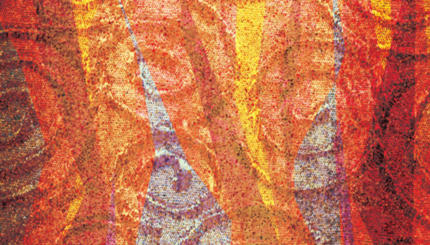Commentary on Parashat Vayigash, Genesis 44:18-47:27
At the climax of Parashat Vayigash, Joseph reveals his identity to his brothers who had sold him into slavery 17 years earlier. Through kisses and tears, the children of Israel become one family again.
In keeping with the theme of reunion, the Haftarah for Vayigash looks to a time in the future when the kingdoms of Judah and Israel will no longer be separated: “I will make them a single nation in the land…Never again shall they be divided into two nations” (37:22).
The Lost Tribes
The division of Israel into two kingdoms–a northern kingdom associated with the tribe of Ephraim, and a southern kingdom associated with Judah–took place in approximately 922 BCE, due to unresolved power struggles that followed King Solomon‘s death.
The northern kingdom was destroyed and sent into exile by the Assyrians in 722 BCE; the southern kingdom was exiled to Babylon in 586 BCE. Ezekiel‘s prophecy was delivered sometime in the sixth century BCE, while in exile in Babylon.
With your help, My Jewish Learning can provide endless opportunities for learning, connection and discovery.
Two Sticks Become One
As is common for this prophet, Ezekiel receives instructions from God to perform an action that serves as a metaphor for God’s message. In this case, God tells Ezekiel to take two sticks and mark one of them “Judah and the Israelites associated with him” and one “Ephraim and the Israelites associated with him” (37:16). Then Ezekiel is told to bring the sticks together, so that they become one stick.
When people ask Ezekiel for the meaning of this action, God tells him to offer a message of promise and comfort: God will collect the people of Israel from among the nations and bring them to their own land. There, God will unite the kingdom, never to be divided again. The Israelites will no longer defile themselves with sin because God will save and cleanse them.
At the time of this redemption, Ezekiel promises that a descendant of King David will rule all of Israel. The people will follow God’s ways, and God will bless them: “I will make a covenant of friendship with them–it shall be an everlasting covenant with them–I will establish them and multiply them, I will place My sanctuary among them forever” (37:26).
Centuries after Ephraim and Judah were divided, Ezekiel continues to dream of a future time when all the children of Israel will live together in harmony.
And the dream lives on. Even after the rule of Babylon ended, it was almost exclusively descendants of Judah who took up the Persian King Cyrus‘ offer to return to the land of Israel and rebuild the temple. The other tribes of Israel remained lost in exile, likely assimilated among the nations where they were dispersed.
Yet to this day, the repatriation of the lost tribes of Israel remains a component of the dream for ultimate redemption.
Haftarah
Pronounced: hahf-TOErah or hahf-TOE-ruh, Origin: Hebrew, a selection from one of the biblical books of the Prophets that is read in synagogue immediately following the Torah reading.


